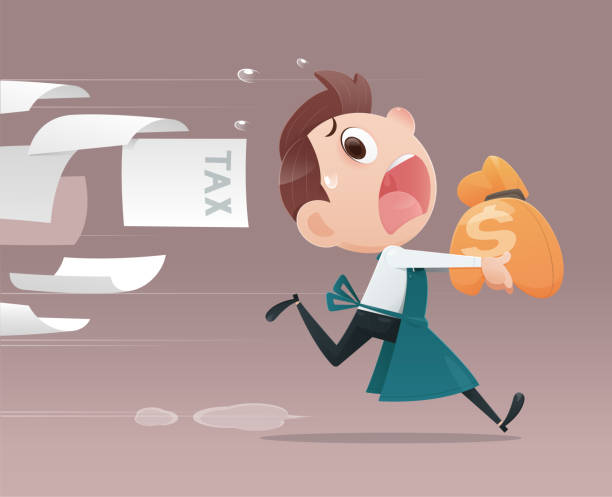I’ve been following the legislature for nearly 20 years. During that time I’ve seen massive budget cuts during recessions, special sessions called for tax relief, a mid-session switch of power via a 9th order, lawmakers sue voters to overturn supermajority for taxes restrictions, a protest from the Governor vetoing bills en masse and the legislature lose a lawsuit requiring them to provide public records. What I haven’t seen before, however, is anything like the just concluded 2020 session.
This session started with several unknowns with a new Speaker of the House and calls to expel a lawmaker. A hot economy provided the opportunity for budget discipline, massive spending increases, or heaven forbid, finally providing tax relief. By the end of session, a global coronavirus pandemic resulted in the Governor issuing emergency proclamations banning certain public and private events and closing K-12 schools. The state’s largest employer also came late to the table begging for a substantial tax increase to be imposed on its industry to head off possible European tariffs.
In the final weeks of session, a tanking of the stock market and Washington’s economic activity as a result of the virus pandemic saw lawmakers slightly scale back their proposed budget increase, allocate $200 million in emergency funding from the protected budget reserves and raised the specter of a possible special session later this year to deal with possible budget deficits. This dramatic 180-degree turn in economic outlook for the state all occurred during the span of a short 60-day session.
Here are some of the other things that happened this session:
- Progress on remote testimony: The House joined the Senate in providing remote testimony this session, though on a limited trial basis. The state’s version of C-SPAN, TVW, also ran ads during its programming educating folks on how to participate in the legislative process using remote testimony. The Lt. Governor’s Office also testified on a proposal to modernize the legislative process by stressing the importance of remote testimony for citizens. This important tool is even more critical now in the era of “social distancing.”
- Lawmakers learn they aren’t special – subject to public records just like everyone else: Before session started the state Supreme Court ruled in favor of a media coalition saying that lawmakers are in fact subject to the state’s public records laws. To their credit, legislative leadership did not try to frustrate the ruling and created processes to standardize how legislative public records should be handled. Having personally submitted several record requests, I can say there has been a learning curve for staff, but they have been responsive and I have been receiving in installments the public records requested.
- Title Only bills alive and well: Despite the massive public outcry and a lawsuit challenging the abuse of Title Only bills used to circumvent the state constitution, the majority party refused to even hold a public hearing on several bills that would ban their use. We did manage to get through this session without a new Title Only bill being acted on but the failure to even hear from the public this session indicates that Ghost Bills will be haunting Olympia for years to come.
- Lawmakers keep door open for income taxes: Apparently the voters haven’t been clear enough when rejecting 10 straight income tax proposals. On the first day of session, 15 Democratic lawmakers filed a brief with the state Supreme Court asking justices to overturn nearly a century of caselaw. These lawmakers want the Court to rule that you don’t own your income so that it no longer counts as property and a graduated income tax can be imposed without a constitutional amendment. Further signaling that an income tax remains on the table in Olympia was the failure by the majority party to even hold a public hearing on several bipartisan bills that would simply re-instate a 36-year-old law banning a local income tax. Lawmakers are also currently engaged in a year long process studying whether to impose an income tax. After this session, it’s becoming clear the voters may need to take things into their own hands.
- Strong revenue growth but taxes increased: Although lawmakers came into session with strong revenue growth forecasted, the very first bill they sent the Governor to be signed into law was a B&O tax increase. They needed to act to fix the problems in the tax that they just passed last year because it was so poorly written and done in such a rushed manner that Washington’s Department of Revenue said it couldn’t be administered. Although the tax needed to be fixed, it was a questionable priority to rush through the process this year before seeing what would happen at the February Revenue forecast and if the tax was still even needed with the expected revenue growth.
Perhaps the most surprising tax debate of session came when Boeing asked lawmakers to repeal the preferential tax rate previously adopted to help improve the competitiveness of the state’s aerospace industry. Boeing made the request because of a World Trade Organization (WTO) ruling that threatened to see widespread European tariffs imposed on Washington goods. Another approach to repealing the preferential rate, however, would have been to do what lawmakers previously did in 2017 by providing all manufacturers in the state the same rate. That manufacturing tax equity rate was shockingly vetoed by the Governor in 2017, setting the stage for the WTO ruling.
Due to the unfolding economic turmoil caused by the global coronavirus pandemic, it is more likely than not we’ll see our lawmakers back in action again later this year. Until then, remember to wash your hands, don’t touch your face, practice good social distancing and remember the words of Pete Carroll: “We got this.”





